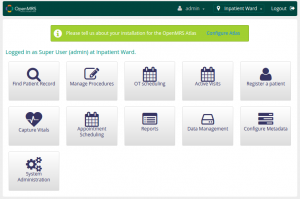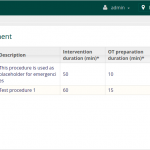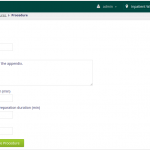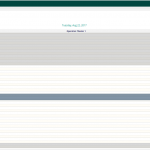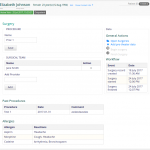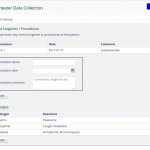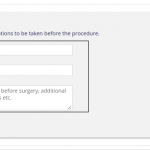It’s a little hard to think 12 weeks have passed already. But as they say, all good things must come to an end. So goes Google Summer of Code 2017 with OpenMRS.
This summer, I worked on the Operation Theater module to bring it up to speed with 2017. The project had 2 main targets.
- Migrate the module to work with the current OpenMRS platform.
- Add workflow enhancements pertaining to pre, post and in-theater stages.
To remind what the operation theater module does, it basically helps us to schedule surgeries in the operation theaters within a hospital. We can add operation theater locations, save available procedures, schedule surgeries for patients and have a scheduling engine come up with the best schedule for current surgeries.
We can also add a team of surgeons and other people who will be taking part in the surgery. But after making the module, it was somehow left behind and wasn’t updated along with the core of OpenMRS & other modules. It just went beep for 3 years.
So my first task was to get it up and running. For this I had to first check what had changed between those 3 years and update the module codebase. I learned much about how the concept of time is handled in the programming world. I learned about Optaplanner, and constraint satisfaction problems in general (shout out to Charith sir for the Intelligent Systems lectures!). And bloody hell, I replaced an entire time library with two other libraries.
Along with that, there were database changes. OpenMRS had migrated from Hibernate 3.x to 4.x, so the Operation theater module needed some changes on that front. There I learned a bit of Hibernate, the ORM (Object-relational mapping. It’s a database thing). So the first month was spent on updating the module codebase and dependencies.
And we revved up the module.
After adding an operation theater location from settings, we can access the scheduling page and start scheduling. But wait, you need to add some procedures first. Otherwise, what surgery are you going to schedule?
And we’re good. So, first task, done!
Next, we started doing workflow enhancements. The main focus here was on the collection of data throughout the surgery. Before starting a surgery, it’s important to know the history of the patient. What procedures have they done before? Are there any drugs we need to give before the surgery? Is the guy even fit to go into surgery? Curiosity to save a life. Or two, counting the surgeon’s.
I initially planned to collect data as notes – free text. But the community suggested that we do it with concepts and observations, the preferred method of collecting data into OpenMRS. This way, we can use the collected data to generate reports and perform analytics. You can probably guess how hard that would be with free text.
I was halfway through doing it with free text when I got the suggestion. After that, I rewrote the code with appropriate concepts. So now, we’re adhering to standards and working neater overall.
We record past surgery data, allergies, physical condition and drug prescriptions during the pre-theater data collection.
We do the same for in-theater and post-theater data. As for in-theater data, we decided to capture it in the post-operative form as it’s not practical to enter the data during the surgery.
And that’s target number two, down. We’re all good with the primary tasks 😀
After that, I started documenting the code and the module. I’ve written some tests to cover the code and tried to clean it up.
I’ve learned a lot in these past few months, specially how a real project handles collection of data in a flexible manner. This is especially useful for some of my personal projects as well.
As next steps, I’d much rather fully rewrite the scheduling engine myself. Then I know the module inside out from its core, and can help other people to get involved in maintaining it. Another possible extension is generating reports from the data we collect. It’s just a matter of presenting the data in suitable formats.
And that’s it for this time, people. We’ll wrap it up after the final evaluations in one more post.
Until then, take care.
